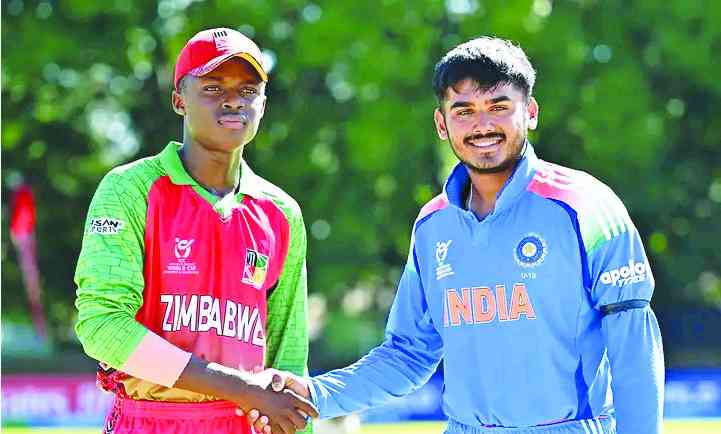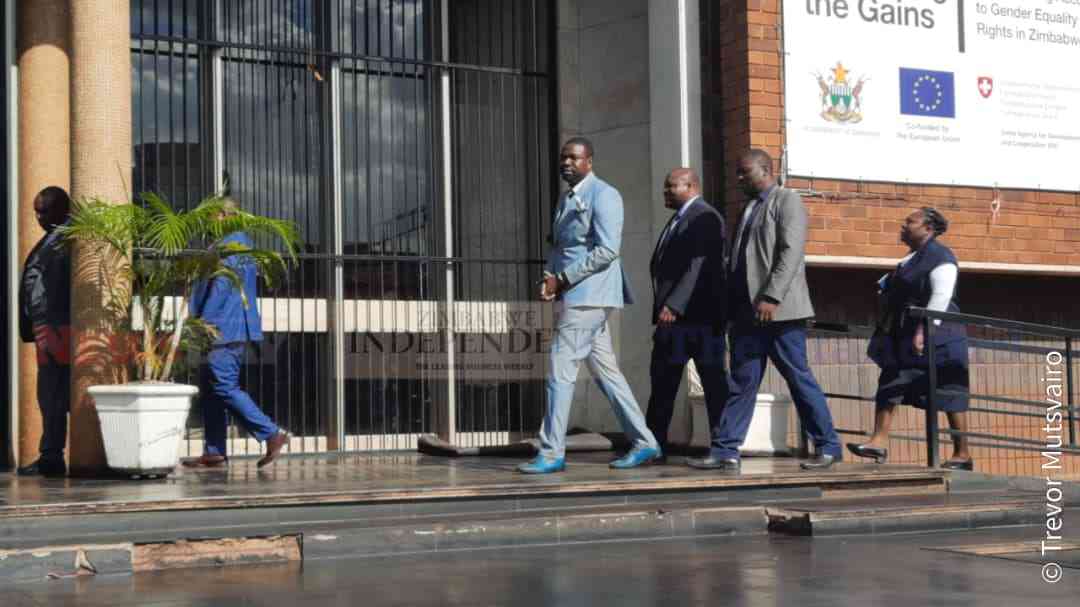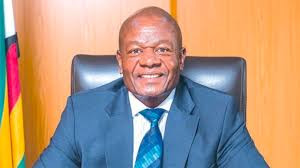
THE Parliamentary Portfolio Committee on Sport, Recreation, Art and Culture has cornered the Sport ministry over the continued delay in finalising the renovations at the National Sports Stadium, which has been closed for almost three years following its ban by international football associations Fifa and Caf.
The ban from hosting international matches came after all local stadiums failed to meet international standards, forcing the national team to play “home” matches in other countries.
Despite receiving large sums of money from Fifa and other stakeholders for the development of football infrastructure, Zimbabwe currently has no national stadium to host and promote domestic football.
While responding to questions from legislators recently, Sports deputy minister Emily Jesaya failed to give a timeline on when the renovations are expected to be completed despite the previously set deadline of this month.
“I cannot give a specific timeline of when the project will be completed because some factors are beyond our control,” Jesaya told Parliament.
The Parliamentary Portfolio Committee is responsible for overseeing the country’s sports sector.
It receives oral evidence from relevant ministries to ensure transparency and accountability in the administration of soccer.
The committee has in the past highlighted how corruption has contributed to the slow pace in the completion of the refurbishment of the National Sports Stadium.
- Budget dampens workers’ hopes
- Govt issues $24 billion Covid-19 guarantees
- Letter to my People:They have no answers for Nero’s charisma
- ZMX to enhance farm profitability
Keep Reading
According to football analysts, scandals of corruption, mismanagement of funds, poor corporate governance and politicisation of football have cast a dark shadow over Zimbabwean football.
Also, lack of transparency and accountability within football administration have crippled development of the sport.
In September, Finance, Economic Development and Investment Promotion minister Mthuli Ncube told Parliament that an estimated US$25 million was required to complete the renovations and facelift of the majestic National Sports Stadium.
He said they were targeting to finalise the refurbishment by December 2024.
Ncube told Parliament that of the estimated budget of US$25 million presented to Treasury by the Local Government and Public Work ministry, Treasury had availed US$3,8 million.
Football, a global sport with diverse stakeholders, is a vehicle for sustainable social and economic transformation, but beneath the euphoria, the pitches are a battle ground for powerful personalities clamouring to run the game.
Scandals abound as millions of dollars are splurged ostensibly to develop the game.
Sports minister Kirsty Coventry is on record stating that the venue should have been upgraded to international standards three years ago had it not been for corruption and inflated prices for some items.
“We have the National Sports Stadium being renovated for the past three years. The first attempt came crashing when things that were tendered (had their prices) inflated,” Coventry said.
“Basic things that should cost about US$200 were priced between US$3 000 and US$4 000.
“The government had put aside US$8 million, but due to corruption, the cost was about US$15 million.”
Said football analyst Owen Dhliwayo: “With a strong administration, transparency and good football governance Zimbabwe has the potential to compete globally. Yet, mismanagement and corruption have been a huge problem in football development.
“Football associations have been used as cash cows by those who have the wheels of power to benefit from the money that is channelled towards the development of the sport.”
He added: “Despite millions of dollars being splurged into developing the game by Fifa and other sponsors, Zimbabwe has failed to experience much in soccer development. Not only in Zimbabwe, but football across Africa has been affected by endemic corruption within soccer governance affecting development of the sport.”
Zimbabwe, like many African countries grappling with the effects of corruption, has put in place legislative and institutional measures to combat corruption which has seen governments losing billions in revenue due to illicit financial flows and tax evasions, impacting the attainment of Sustainable Development Goals.
In 2020, the Zimbabwean government launched the National Anti-Corruption Strategy (2020-24), the country’s main policy document which adopted a multi-stakeholder approach in the fight against corruption.
Within the National Anti-Corruption Strategy, the Zimbabwe Anti-Corruption Commission (Zacc) was established in terms of section 254 of the Constitution.
Zacc is one of the key agents mandated to combat corruption in collaboration with the National Prosecuting Authority of Zimbabwe and other stakeholders.
Zacc, in collaboration with the Sports ministry, highlighted their desire to investigate growing corruption in the sports industry, which include abuse of public funds in football in a bid to restore sanity to the game.
However, despite efforts being made by the commission to investigate cases of corruption both in private and public institutions, underfunding has been the stumbling block in effectively carrying out its duties.
A Veritas' November report on Parliament’s 2025 pre-budget seminar indicated that certain sectors and institutions were underfunded in the 2024 budget affecting their operations.
“Zimbabwe Anti-Corruption Commission and the National Prosecuting Authority were underfunded despite the rising corruption cases in the private sector especially among the elite,” part of the Veritas report read.
“The National Prosecuting Authority was underfunded by 38,6%. This is very worrying considering the time it is taking to prosecute criminal cases in the courts and some criminals going scot-free because of inadequate investigations or failure to prosecute cases timeously.”
According sports analysts, corruption is rife in football administration and development because funds are not being handled well due to lack of transparency and accountability.
“All the finances received through Fifa and other sponsors should be made available for public accountability and transparency,” said sports journalist Richard Zimunya.
“The way funds had been implemented within Zimbabwe football administration is always suspicious. Funds are abused and never accounted for.”











